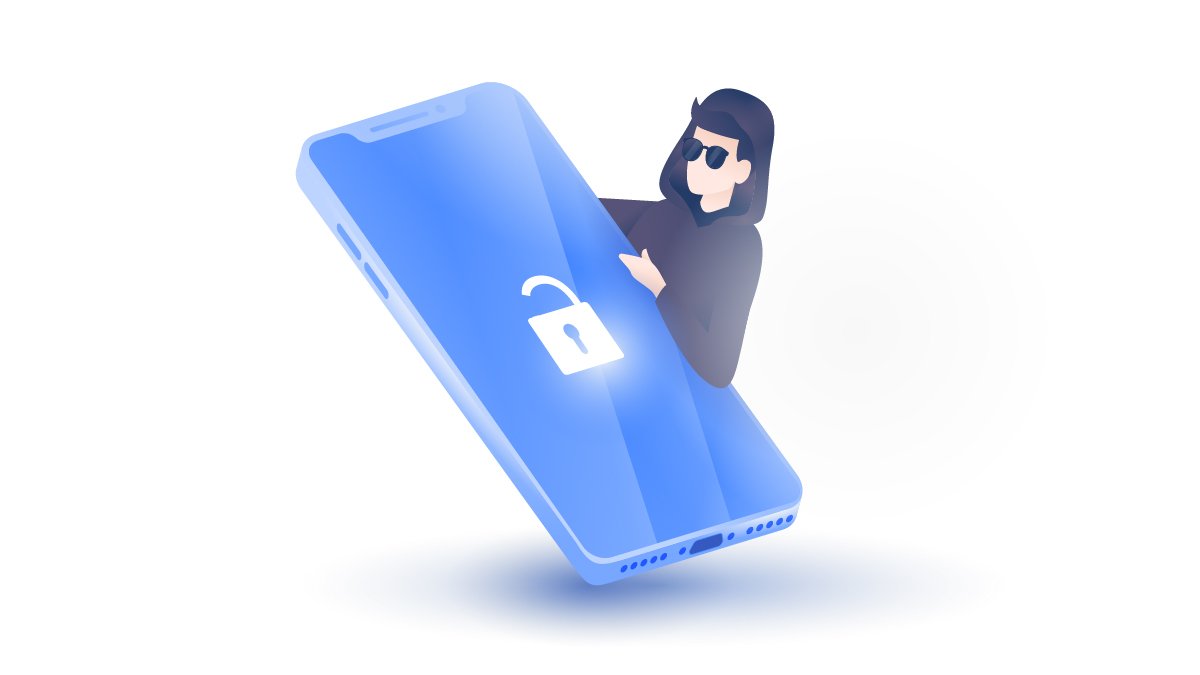What’s the best way to lock your phone?
Do you really feel like you’re in control of your smartphone? Are you doing everything you can to protect your device? If the answer’s no, you’re not alone. NordVPN recently surveyed smartphone users in several European countries; let’s get into the results.
Malcolm Higgins
Sep 13, 2021 · 3 min read

What does the research show?
Our study involved respondents from numerous countries including France, Spain, and the Netherlands. The results show that almost half of smartphone users in these countries feel that they don’t have control over their devices.
More worrying still, many of those surveyed did not have a clear understanding of cybersecurity and privacy threats, or how to protect against them. The majority relied on outdated security measures like simple numerical pins and passwords.
If there’s one takeaway from this study, it’s that most people simply aren’t equipped to keep themselves and their smartphones safe on the internet.
Country comparisons
So how did countries in Europe compare? Let’s take three from our study.
- France. At 68%, France had the highest percentage of users who felt that they weren’t really in control of their own smartphones. French concerns about privacy breaches and data leaks were particularly focused on financial transactions (74%) and stored personal pictures (45%), but respondents often seemed unaware about the best practices to mitigate these risks.
- The Netherlands. While many Dutch respondents reported being worried about cybersecurity threats, many still used inadequate protection. For example, 61% of those surveyed said they secured their devices with only a pincode. While that’s better than nothing, pincodes are notoriously easy to crack. According to a study by InfoSec, 26% of all phones can easily be accessed with simple codes like “1234”, “1111”, “123456”, and “000000”.
- Spain. While Spanish respondents had fewer concerns about being unable to control their devices, 59% of those surveyed said they relied on passwords to unlock their devices. The problem with passwords is that forgetting them can be a nuisance, so people tend to use very simple words and phrases. The simpler a password is, the faster a hacker can crack it and gain access to a device.
What’s the best way to lock and unlock your phone?
While a pin or password can help, you should try to add as many layers as possible. Many Spanish respondents used both a pincode and a pattern swipe lock, which is certainly a step in the right direction.
However, a more secure option may be a biometric lock, like a fingerprint scanner or a facial ID system. That’s not to say these methods are perfect — fingerprint locks have been bypassed before using images of the user’s finger, while face ID has been shown to be less effective for people of color.
But while these are both worrying factors, biometric authentication is still more effective than a simple password. We would urge you to use a combination of different locking techniques, instead of relying on a single method (a practice referred to as two-factor authentication.
How to take control of your smartphone
If you are one of the many people who do not feel like they’re really in control of their device, here are a few tips for changing that.
- Research your device settings online. You’ll probably find numerous guides, walkthroughs, and manuals online to help you make the most of your phone’s security settings. A quick search may reveal that your smartphone already has security functions that you’ve not enabled yet.
- Use two-factor authentication. If you can, use both a password and a biometric authentication process, making it doubly hard for hackers to break into your smartphone.
- Start using a VPN. No matter how strong your lock system is, your smartphone could still be vulnerable to hackers if you use unsafe internet connections. To avoid the risks of public Wi-Fi and unsecured networks, install a good quality VPN app on your device to encrypt your browsing data.


